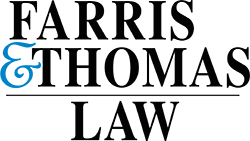If a loved one is killed in a vehicle crash caused by another driver, that driver is likely to face criminal charges – particularly if they were under the influence or driving recklessly. However, that’s not going to help with medical bills, burial costs, lost income and other financial hardships that your family is likely to face.
That’s where a wrongful death suit comes in. In many states, these lawsuits can be filed by close family members like spouses, children and parents. In North Carolina, however, they can only be filed by the personal representative (also known as the executor or administrator) of the person’s estate. If the victim didn’t leave a will naming a personal representative, someone will be appointed to act as the “collector of the decedent.”
Even if the personal representative is a family member, their role in this legal action is to represent the estate. Any award or settlement will go to the estate and can be used to pay bills related to the fatal injuries and to those named as beneficiaries in the decedent’s will. If there was no will, family members will inherit the assets of the estate according to North Carolina intestacy law.
What kind of damages can you seek?
The personal representative can seek economic damages, as we noted, for things like medical and burial expenses. Both economic and non-economic damages can be recovered in a wrongful death claim. Economic damages are typically for medical and funeral costs. A wrongful death claim can also seek non-economic damages for the pain and suffering of the deceased person before they died.
A claim can also seek damages based on the “present monetary value of the decedent,” like future income they would have earned. You can also ask for damages to make up for the value of care and other non-compensated services they provided their family.
Non-economic damages are possible as well. These include things like loss of companionship for surviving loved ones and the pain and suffering of the deceased after the collision or other event and before their death.
If you can show that the fatal injuries occurred “through malice or willful or wanton conduct,” you may also be able to seek additional punitive damages from the person or party you hold responsible.
Every situation is different. That why it’s wise to get legal guidance as soon as possible to discuss a wrongful death lawsuit.

